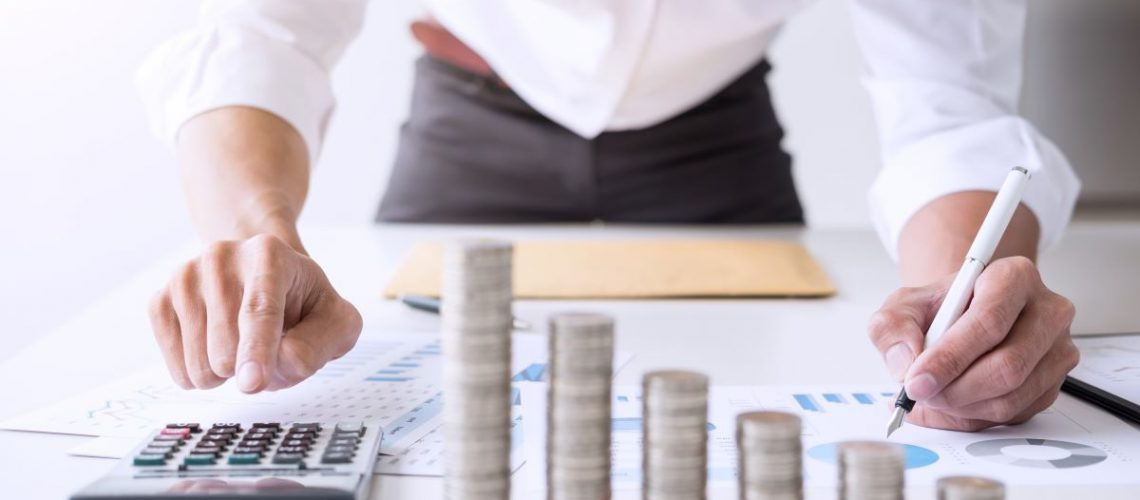The deadly coronavirus from China brought more than just a pandemic when it swept all over the world. The severity of the disease it caused has led industries and businesses to close shop indefinitely. This meant that the global workforce was put to a grinding halt, something that is unprecedented in history.
This sudden stoppage and suspension of industry and trade have resulted in a massive worldwide economic crisis.
Investing during a crisis
Because of the economic crash brought about by COVID-19, the federal government put in place a special program that will help millions of Americans deal with and cope with the effects of the disease. The Coronavirus Aid, Relief, and Economic Security Act, or the C.A.R.E.S. Act, was put in place in March 2020. This $2.2 trillion economic stimulus government program provided $300 billion worth of one-time cash payments to individuals who submit tax returns.
This means that single taxpayers received $1200 with families getting more. That was one of the advantages of having tax specialists and accountants maintain proper bookkeeping for truck drivers, store owners, white-collar workers, and other professionals and businesses.
Fast forward to a year later, the pandemic still looms over us with no signs of going away soon. This has caused the government to once again provide another batch of stimulus checks for its citizens.
And while most of these checks will be used to pay for households’ daily needs, some financially literate people are putting serious thought into taking some (or all of it) and investing it.
But is it really a good time for investments? Or is it wiser to just save those stimy checks? With the way things are going now, how should one decide about investing during a pandemic?
4 Questions to Ask Yourself Before Making a Decision
The stimulus checks are a big financial help for Americans at this time. A wise person will think of ways to protect his or her finances. The question is whether to use their excess money in investments or to put it away in a savings account. Before you make any major money decision, ask yourself the following questions first:
Question #1: Do I have an emergency fund in place in case things go south?
In light of what happened last year and how it caught a lot of people off-guard, especially financially, do you have an emergency fund in place in case another crisis happens? It is wise to have at least six months’ worth of salary set aside for emergencies and crises. It will help secure you financially for any unforeseen circumstances by paying for your bills and providing for your family. Prioritize that first.
Question #2: Do I need the money sooner or later?
Now let’s say that you have emergency funds and savings set aside for a rainy day, the next thing you need to do is take a look at your goals and your timeline. If you will need your money in three to five years, you might be better off putting them into high-yield savings account instead of an investment. But if you’re looking at something a bit more long-term and you have enough liquidity, investing in stocks is not a bad idea.
Question #3: What is the extent of my risk tolerance?
With healthy savings and emergency funds in place and clearly-outlined goals, considering investing is a logical step. You should, firstly, do your homework before deciding where to put your money in. Investing involves certain amounts of risks. You need to know how far you can go, what your risk tolerance is. The factors to consider are your age, how much money you can invest or afford to lose, and what your timeline is. If you’re unsure about the process, seek counsel from a professional.

Question #4: How much money do I have right now?
Lastly, think about how much money you have on hand and what your income is. Keep in mind that the most responsible thing you can do is to secure yourself financially in case of any emergencies. If you’re only making enough to set-up an emergency fund, prioritize that. Set aside as little as $20 or $30 a week and make a habit out of it. It might seem small but it can help get you started.
One of the misconceptions about investing is that you need a big amount to get started. Not true. You can start investing with a few bucks every month. Several apps and robo-advisers can help get you started in investing.
If you don’t have enough cash right now, it’s okay. We’re all a little strapped for cash because of the pandemic. What matters is how we handle our finances wisely at this time.
Ultimately, the decision will be based on your present financial standing and needs. If you can afford the risk and you’ve already padded yourself financially, then perhaps investing could work for you. Not everyone is in the same boat. Our circumstances will dictate our financial needs and decisions. At a time when money is harder to come by, make sure you make the wisest decision you can make.

